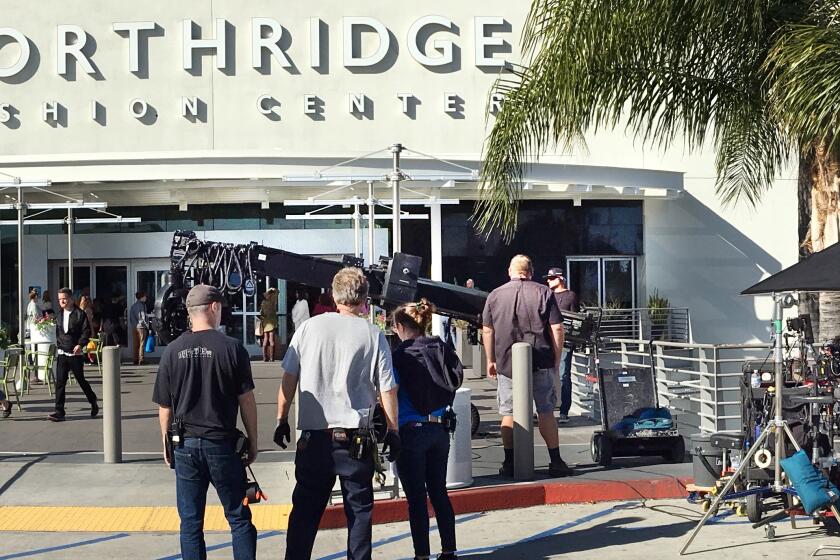Hollywood is in line for $330-million tax credit boost for TV shows, new studios
State legislators have voted to increase film and TV tax incentives by another $330 million in a bid to increase the supply of studio facilities and stop production jobs leaving the state.
California’s Senate and Assembly on Thursday approved Senate Bill 144, which will tackle a shortage of soundstage space in the region. The measure also introduces diversity goals to address the lack of access to Hollywood for workers of color and other marginalized groups.
For the record:
5:50 p.m. July 16, 2021A previous version of this article said the Senate and Assembly approved SB 144 on Tuesday. The approval was on Thursday.
The tax credit includes a $180-million increase to the current $330-million annual film tax incentive program — which runs through 2025 — and a new $150-million credit allocated for the construction of soundstages.
The supplemental tax incentive funds are intended to address a shortfall in the current tax credit program, caused in part by the high number of recurring TV shows that are eligible for tax breaks as long as they operate in the state. California also faces continued competition from New Mexico, New York and other states that offer tax incentives to attract film and TV crews.
Gov. Gavin Newsom is expected to sign the bill shortly, according to a statement from Sen. Anthony Portantino (D-La Cañada Flintridge), who backed the bill.
“Investing in soundstage construction and the creation of studios and filming locations is a critical addition to our efforts in increasing filming in the Golden State,” Portantino said in the statement. “New stages will yield thousands of jobs, millions of dollars in wages and billions of dollars of economic benefit for California.”
Last year, the program’s beneficiaries included the Netflix movie “Gray Man,” starring Ryan Gosling and Chris Evans, which received a $20-million tax break, according to the California Film Commission. As production started last summer after a pandemic-forced shutdown of filming, several TV productions relocated to the state to tap into the incentives. Shows for streaming platforms such as Disney+ and Amazon were also among the beneficiaries.
Greater Los Angeles has enjoyed a boom in local film and TV production, but the surge in demand has created a crunch for studio space.
The new bill increases the tax credits available by $15 million for each of fiscal years 2021-22 and 2022-23 for television series that relocate to California. It also increases by $75 million the bucket of credits in each year for recurring TV series exclusively.
The planned $150-million soundstage incentive provides 20% or 25% credits for productions that film in renovated or newly constructed soundstages. The stages must be certified by the California Film Commission.
And they are required to meet workforce diversity targets that reflect California’s population in terms of race and gender.
Each series or film project can claim a maximum of $12 million, and construction costs must exceed $25 million over five years.
Additionally, producers of motion pictures must spend at least $7.5 million on qualified wages for filming on the soundstage and own more than 50% of the facility or have a 10-year-plus lease or contract.
The new incentive echoes some elements of New Mexico’s recently revamped film tax incentives that lifted a cap on the credits for studios that invested in local facilities. The incentives lured Netflix and NBCUniversal into decade-long, billion-dollar studio investment deals in Albuquerque.
The new California bill was backed by Portantino and co-written by Assembly member Autumn Burke (D-Marina del Rey), chair of the Assembly Revenue and Taxation Committee, and Assembly member Wendy Carrillo (D-Los Angeles).
In 2018, California extended the state’s film tax incentive program by five years to counter the tide of runaway productions.
Under that $330-million program, producers can recoup as much as 25% of their spending — up to the first $100 million — on crew pay and other costs, such as building sets. Studios can then use the credits to offset state tax liabilities in California. It does not cover salaries for stars and other so-called above-the-line production workers.
More to Read
Inside the business of entertainment
The Wide Shot brings you news, analysis and insights on everything from streaming wars to production — and what it all means for the future.
You may occasionally receive promotional content from the Los Angeles Times.












